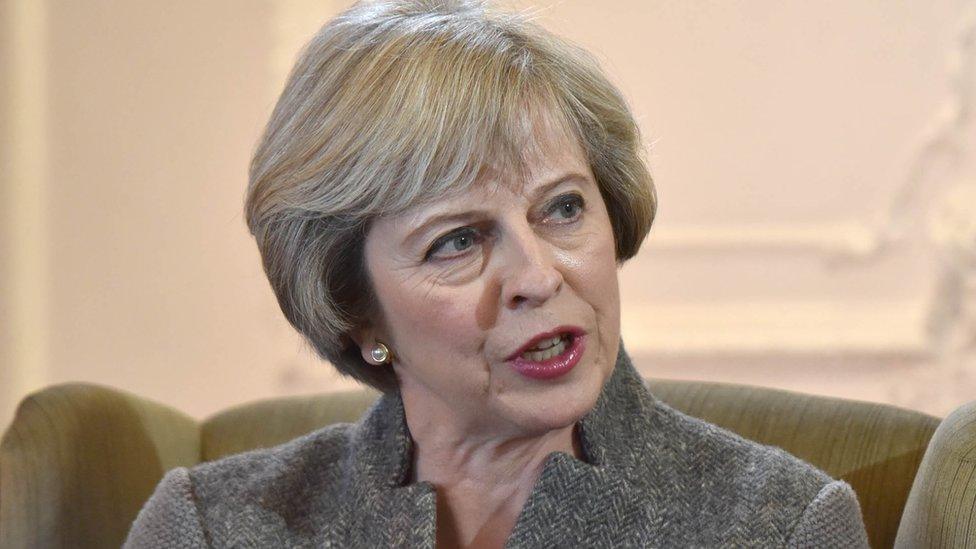G20 leaders told 'avoid empty talk' by China's Xi Jinping
- Published
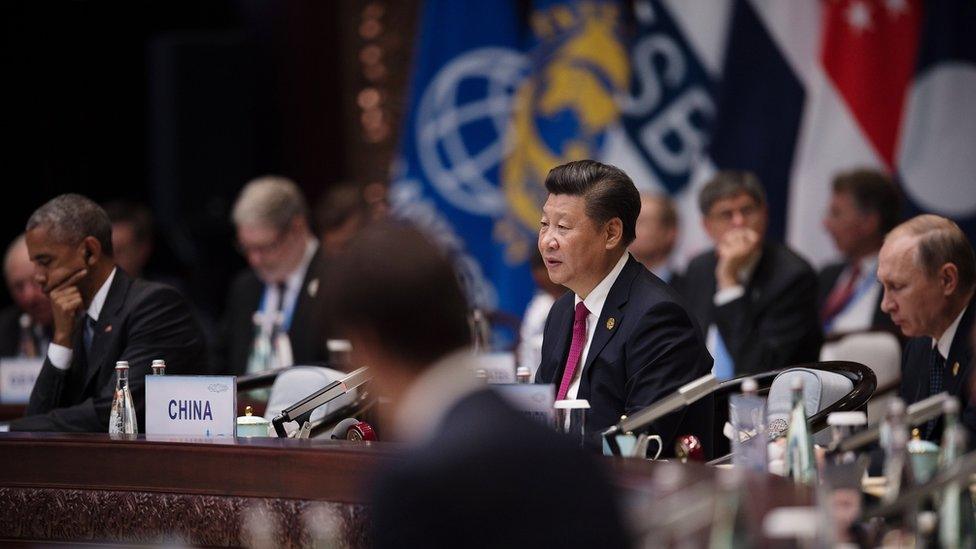
China President Xi Jinping: 'Risks and challenges' face world economy
China's President Xi Jinping has urged leaders of the world's 20 largest economies to avoid "empty talk" as they look to quicken economic growth.
World leaders are at the annual G20 economic summit, which is being hosted in China for the first time.
President Xi said the global economy was at a "crucial juncture" due to volatile markets and feeble trade.
Also discussed on the first day of the G20 were the global steel crisis, trade barriers and the UK's Brexit talks.
President Xi said: "Against risks and challenges facing the world economy, the international community has high expectations of the G20 in the Hangzhou summit."
German Chancellor Angela Merkel said the G20 leaders had agreed they need to work together to increase economic growth.
However, it is unlikely a major deal will be struck, particularly as the most productive discussions are taking place one-on-one, said BBC Asia Pacific editor Celia Hatton.
President Xi urged his counterparts to avoid empty talk in their attempts to boost trade, but his "critics might raise an eyebrow at this: China is often accused of putting up trade barriers, not tearing them down," she added.
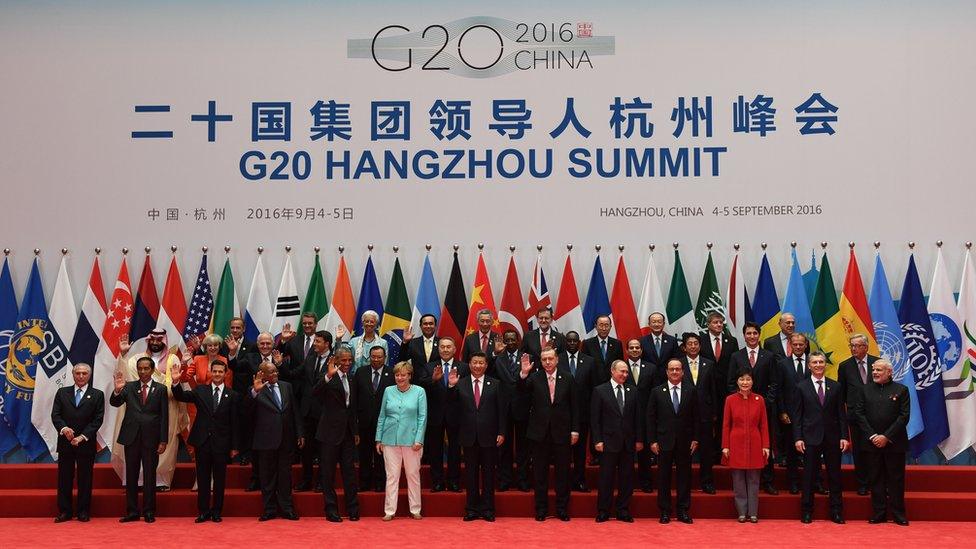
Leaders from 20 major economies are in the Chinese city of Hanghzou for the G20 summit
Ahead of the meeting, the International Monetary Fund (IMF) warned it was likely to downgrade its forecast for global economic growth again this year.
The IMF has already reduced its global outlook after the Brexit vote, cutting forecasts for world GDP growth to 3.1% for 2016 and 3.4% for 2017.
'What Brexit means'
It is the final G20 summit for US President Barack Obama and the first for British Prime Minister Theresa May.
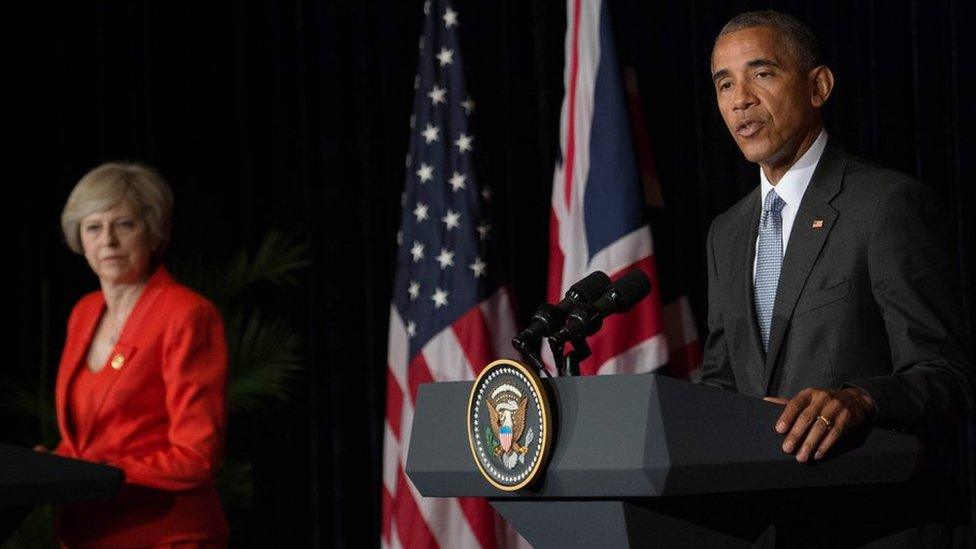
President Obama said US trade talks with the EU would come ahead of talks with the UK
At a joint press conference, President Obama said the first task for Britain following the EU referendum was to "figure out what Brexit means with respect to Europe".
He added that the US would prioritise its trade talks with the EU - known as the Transatlantic Trade and Investment Partnership (TTIP) - ahead of talks with the UK.
Mrs May will be explaining at the two-day summit in the city of Hangzhou what the British decision to leave the EU might entail.
It comes as Japan's government has issued a stark warning about the possible impact of Brexit on the country's firms operating in the UK.
Hinkley Point
Mrs May has also defended her surprise delay in making a decision on the £18bn Hinkley Point nuclear power project, saying she would "look at the evidence and consider it properly".
"I've been very clear that I will be doing that and will be taking a decision sometime this month," she added.
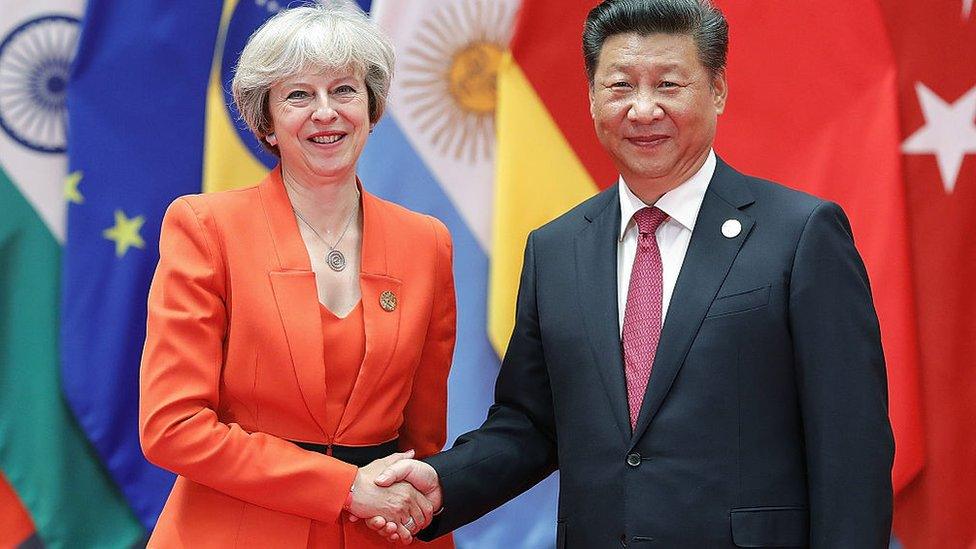
Hinkley Point will be discussed by Theresa May and Chinese President Xi Jinping
The Prime Minister is due to discuss the project with President Xi amid heightened diplomatic tensions over her perceived concerns about Chinese involvement in Hinkley Point.
Steel crisis
China's continued production of cheap steel was also an issue on the opening day of the summit.
European Commission President Jean-Claude Juncker said China must address its problem of industrial overcapacity, saying it was "unacceptable" the European steel industry had lost so many jobs in recent years.
"Overcapacity is a global problem but there is a particular Chinese element," Mr Juncker said.
He also defended the EU commission's decision to hit tech giant Apple with a €13bn (£11bn) bill for unpaid taxes, saying it was not aimed at the US.
"We are basing our decisions on facts and on the legislation," Mr Juncker said. "This is not a decision against the United States of America."
- Published4 September 2016
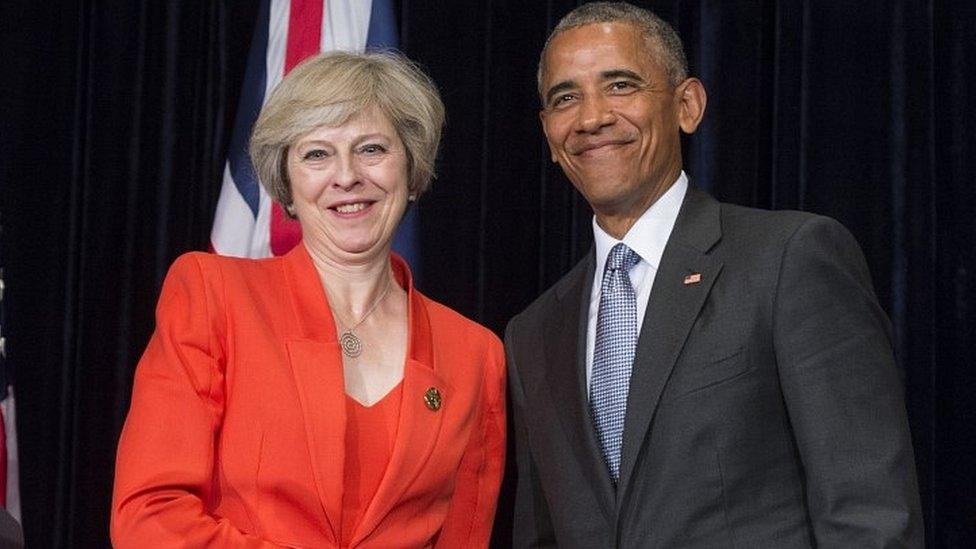
- Published4 September 2016
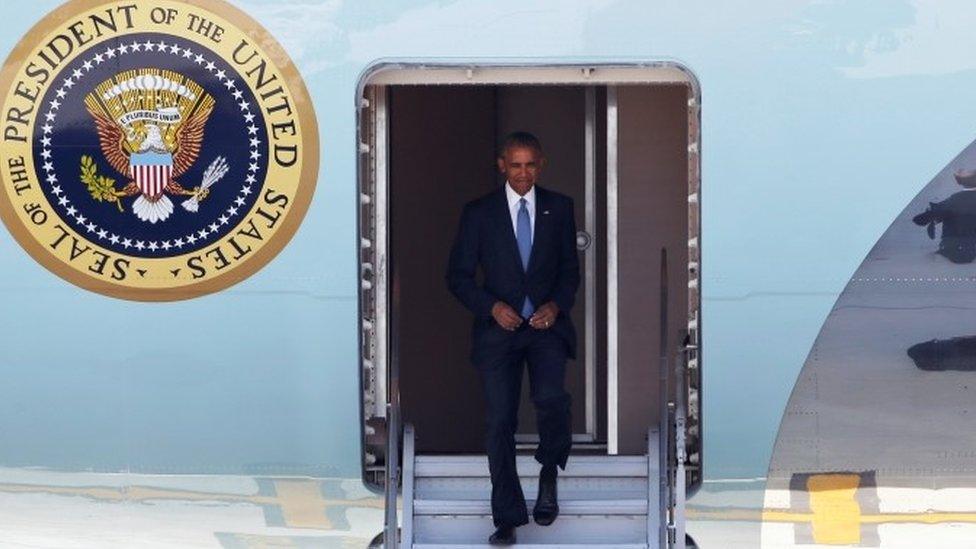
- Published3 September 2016
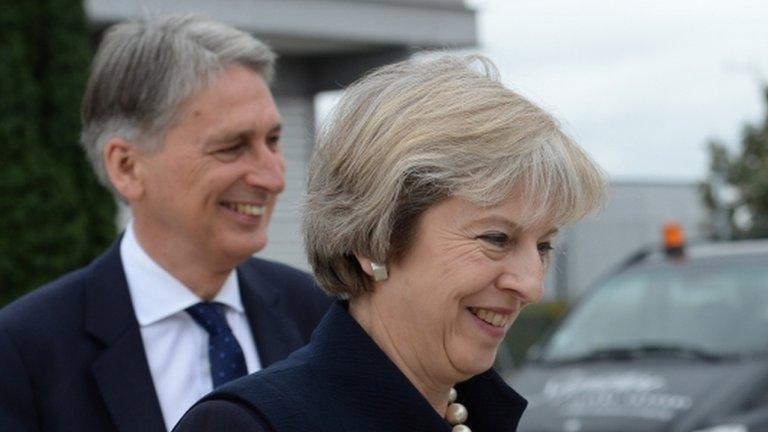
- Published4 September 2016
- Published4 September 2016
